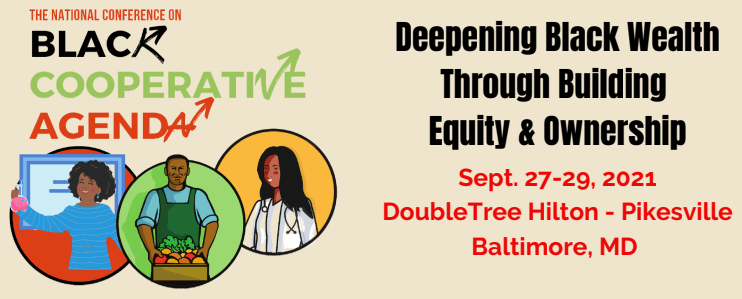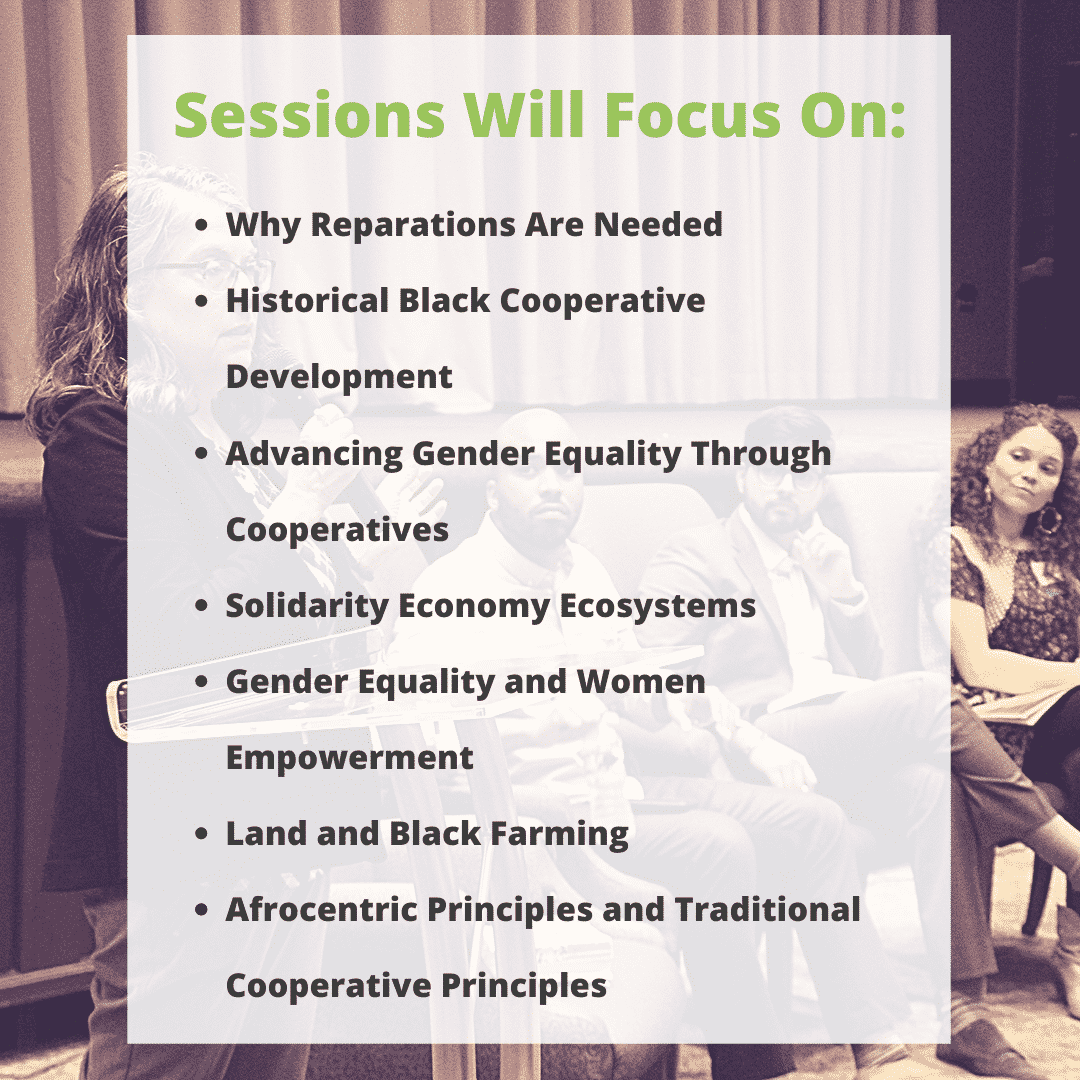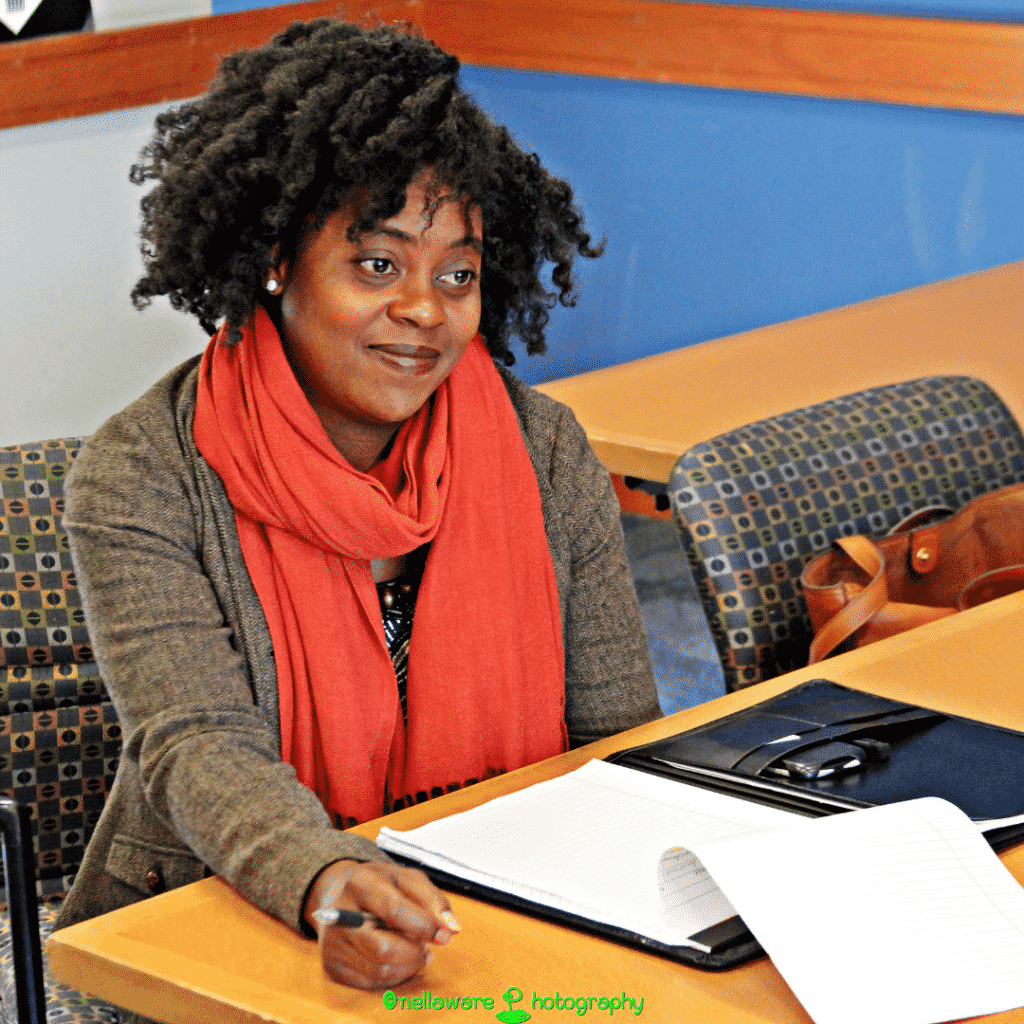- Strengthen BIPOC economic systems by developing cooperative business skills to support successful ventures
- Create strategic alliances and strengthen relationships between BIPOC cooperatives
- Celebrate successful examples and learn from other cooperatives

“One of the things that has to be faced is the process of waiting to change the system, how much we have got to do to find out who we are, where we have come from and where we are going.” – Ella Baker
National Black Co-op Building Time! !
Jambo,
The Network for Developing Conscious Communities (NDCC) invites you to take advantage of the Early Registration for the 1st Inaugural National Conference on Black Cooperative Agenda, September 27-29, 2021, through attending in-place or virtually from your workspace. This year’s conference theme is “Deepening Black Wealth Through Building Equity and Ownership”
This conference is a national call for Black cooperators, solidarity economy workers and economic justice advocates to take part in a broad array of plenary sessions, workshops, and symposia; as well as celebrate 53 years of The Poor People’s Development Foundation (PPDF), final national conference which expanded the cooperative movement in Black and poor communities.
This is a Call-To-Action Conference that will feature prominent keynote speakers, and grassroots cooperative leaders. Sessions will be facilitated on Afrocentric cooperative development practices, community based economic solidarity strategies and creating community ownership that changes the everyday lives and destiny of Black individuals, Black families, and Black communities.
This year’s “Early Bird Registration” is open from July 12th until July 25, 2021, ending at
11:59 pm. Regular Registration will begin July 26 ending at 11:59 pm. The price will shift after early bird registration ends. so put this conference on your calendar! We invite you to join us at this 1st Inaugural National Conference on Black Cooperative Agenda as we continue the important discourse for liberation as conscious warriors for building Black conscious communities, abolishing racial inequities, and strengthening solidarity among Black and poor people.
We want to hear and learn from your cooperative experiences as worker owners, developers and grassroot supporters as we seek to impart culturally centered history and ownership values as renewed cooperative building platforms. Later this week, our new website will launch and you can learn more about speakers, sessions, sponsorship opportunities and membership. www.ndccnetwork.org


Hear From A Previous Conference Attendee
“I have been able to attend conferences held by Network for Developing Conscious Communities and I applaud the level of commitment to bring together people across generations, culture and racial identity. The one thought that describes my feeling being there is “Heighten Conscious Circle.” The conference organizers aren’t afraid to tread in uncomfortable dialogues and conversation that have included institutional racism, Black reparations and shifting community power dynamics. The speakers were amazing! Networking was awesome! More importantly, I felt most people attending were there to consciously make real change and create a unique mindful experience.”
-Jennifer Lumpkins, Cleveland Ohio
